
Some thrillers are brilliant examples of cinematic technique and narrative structure. Some have a twist in their tail or a narrative hook to catch your attention. Others are sometimes forgotten, taken off television schedules, left on the self, or lost among the more famous titles on Netflix. Some thrillers get a raw deal with their distribution and are only found at the bottom of the bargain bin at your local store, while others simply get forgotten as the thriller genre moves ever forward. Bearing this in mind, let’s take a look at some of the films that may have fallen off the radar or gotten lost on their way, and deserve a bit more attention.
1. Road Games (1981)
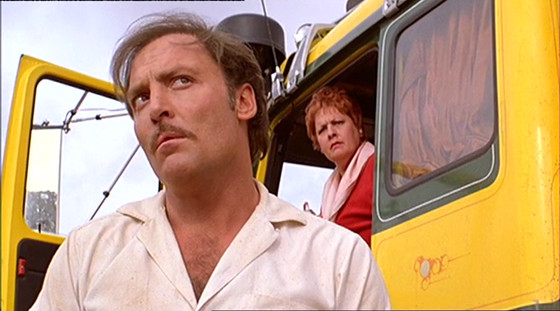
Essentially Rear Window on wheels, Road Games is another Hitchcock-inspired thriller from Australian director Richard Franklin. Along with his pet dingo, Quid (Stacey Keach), a tired and weary truck driver, travels across Australia with a truckload of pork. Travelling along the Nullarbor Plain, Quid plays along on a harmonica to Mozart’s Eine Kleine Nachtmusik, quotes Geoffrey Chaucer, and creates his little world inside the cab of his truck.
In Road Games, Quid looks out of his Panavision-shaped windscreen, just as Jimmy Stewart in Rear Window snooped and spied on Miss Torso, Miss Lonelyhearts, and Lars Thorwald. Quid spies his own set of characters; Captain Careful, Benny Balls, and Sneezy Rider, among many others, and it’s not long before Quid begins to suspect that one of his fellow travellers is guilty of murder.
Sean Connery was initially sought for the role of Quid before director Richard Franklin saw the huge price tag that came along with the ex- 007. Franklin drafted American actor Stacy Keach as a replacement, who immediately loved the Hitchcockian script by Everett De Roche.
Australian actress Lisa Peers was originally cast as the imaginatively named “Hitch”, an attractive hitchhiker Quid picks up on the road, before the stateside distributor vetoed the idea for the sake of cast insurance and bagged scream queen Jamie Lee Curtis.
Director Richard Franklin was a true devotee of Hitchcock and had ushered the great man down to speak to his classmates when Franklin was at film school in America. Unsurprisingly, in Road Games, Franklin adds a lot of Hitchcock’s film grammar to the mix, and what’s left is a standout thriller with a terrific central performance from Stacy Keach. Championed for years by no less than Quentin Tarantino, Road Games, without any doubt, needs to be more widely seen and re-evaluated.
2. Obsession (1949)
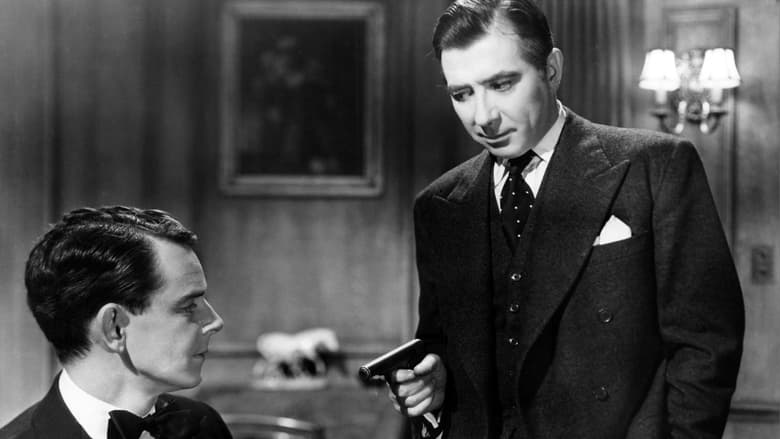
Some may feel that Edward Dmytryk’s Obsession may need a shot of adrenaline to get going, but this polite, sophisticated story of a would-be murderer who wants to do away with one of his wife’s lovers has a lot to offer. The would-be murderer is Robert Newton, soon to cement his legacy as the definitive onscreen pirate in Disney’s Treasure Island. Here, Newton plays Dr Clive Riordan, a well-to-do London doctor who has grown tired of the extramarital affairs conducted by his wife, Storm (Sally Gray). Future Star Wars actor Phil Brown plays Bill Kronin, Storm’s new loverboy, who unexpectedly goes missing the day after being held at gunpoint by Dr Riordan.
To no one’s surprise, Storm assumes her husband has something to do with Bill’s disappearance and calls in Scotland Yard to investigate. Naunton Wayne plays Superintendent Finsbury, and we get a kind of early version of television’s Lieutenant Columbo. It’s all very English and civilised, which contrasts with Dr Riordan’s dastardly plan to kidnap Bill, hide him in a secret room, and dissolve his body in a bath full of acid.
Director Edward Dmytryk, who had run to England to escape the House Un-American Activities Committee, depicts the bombed-out streets of post-war London in an assured film noir style. Screenwriter Alec Coppel, who would go on to script Hitchcock’s Vertigo a decade later, adapted his own book, ‘A Man About a Dog’, awarding Newton and Naunton Wayne the lion’s share of his best dialogue. Released as the more suitably titled The Hidden Room in the United States, Obsession is a lot of fun and deserves a broader audience.
3. The Odessa File (1974)
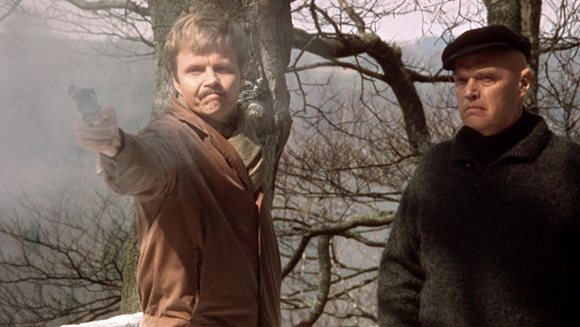
Based on the novel by Frederick Forsyth, The Odessa File is a thriller set in the 1960s about Nazi-hunting journalist Peter Miller (Jon Voight). The assassination of John F. Kennedy hangs in the background as Miller, with the help of a diary from a Jewish holocaust survivor, learns about Nazi war criminal Eduard Roschman. Obsessed, Miller begins his own investigation and learns of a secret organisation of ex-SS officers operating in post-war Europe. During Miller’s investigation into Nazi war crimes and this new, secret organisation called Odessa, Israeli agents convince Miller to go undercover and become a member of Odessa to learn more about Eduard Roschman, the “Butcher of Riga”.
There is, of course, some truth to Odessa being a real organisation, although in reality it was a much larger organisation involving more than former SS officers. The film uses real-life characters such as Eduard Roschman and Simon Wiesenthal and historical events to help bring the narrative to life. This helps to move the narrative along, as Miller, going deep undercover within the world of Odessa, is decked out with a new disguise and a head full of Nazi trivia.
After the great success of The Day of the Jackal, another Frederick Forsyth novel was ripe for big-screen treatment. The Odessa File certainly matches its predecessor in pacing and detailed storytelling, as well as benefiting from a well-staged fight and clever casting decisions. Directed by British stalwart Ronald Neame, combined with solid performances and generous use of location filming, The Odessa File is an impressive thriller supported by an intense performance by Jon Voight and a kooky music score by theatre impresario Andrew Lloyd Webber.
4. The Naked Face (1984)
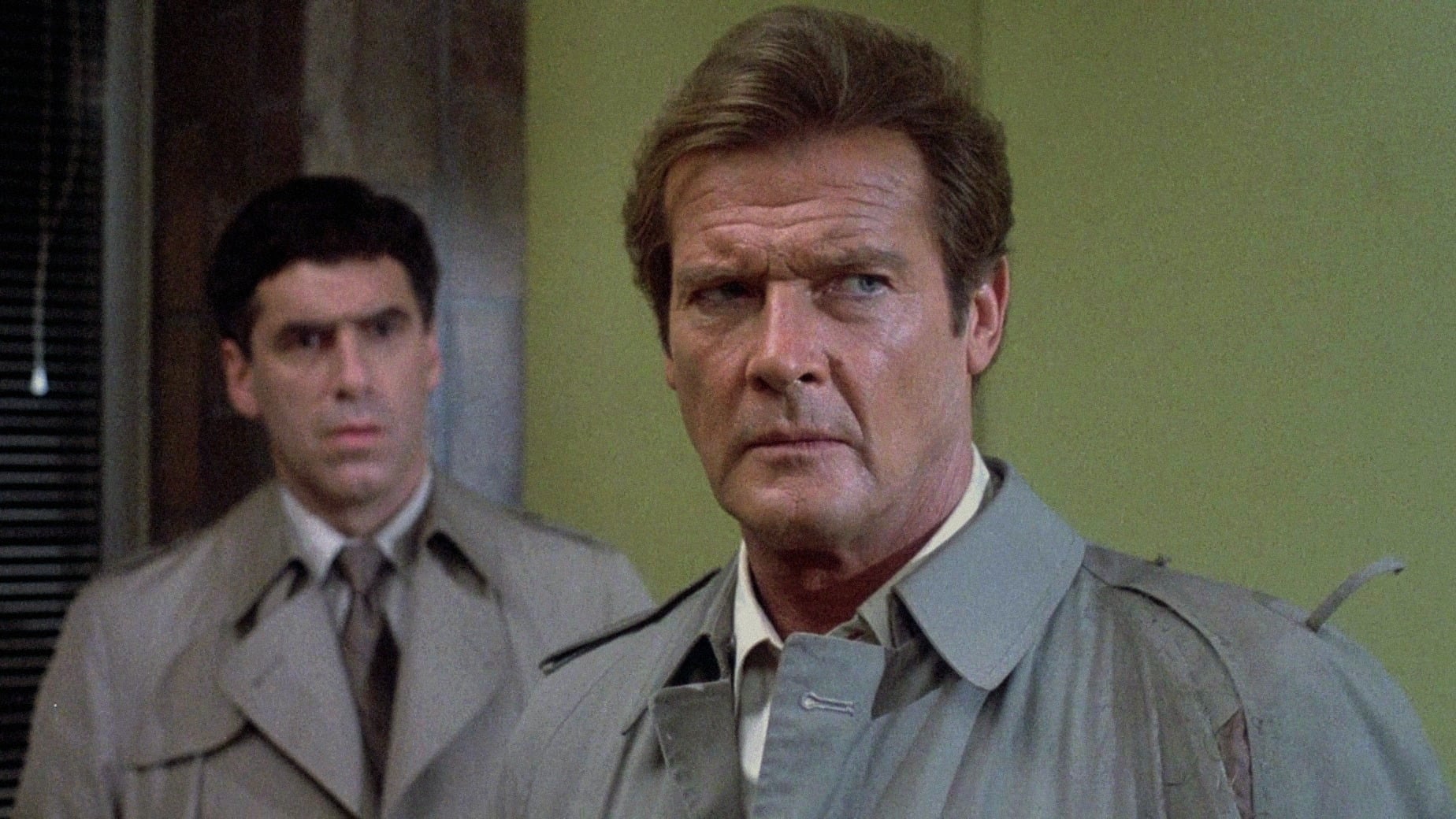
Produced by cult producers Menahem Golan and Yoram Globus, The Naked Face came along just as Roger Moore’s 007 days were winding down. Moore had already tried to shake off his suave, debonair image twice before with cult favourite, The Man Who Haunted Himself, and 70s potboiler, North Sea Hijack. The Naked Face allowed Moore a third roll of the dice as he moved even further away from his 007 antics, this time playing a lonely, widowed, Chicago-based psychiatrist who accidentally gets mixed up in murder as well as the mob.
Based on a bestseller of the same name by Sidney Sheldon, The Naked Face provides a bombastic performance by Rod Steiger. With a career born out of the Actors Studio in the post-war years, Steiger’s proclivity to make use of the Method leads to a performance that is out of step with the rest of the film. Wearing an ill-fitting wig, Steiger plays a Chicago cop who screams most of his dialogue. On the other hand, 70s film favourite Elliott Gould, who had sparred so memorably with Moore in Escape to Athena five years earlier, offers a splendid performance as the more subdued Detective Angeli.
Moore suggested that his friend Bryan Forbes could direct the film, with Forbes allowing Moore ample screen time to stretch his acting chops. Forbes had a string of successful films behind him (Whistle Down the Wind, Séance on a Wet Afternoon, The Stepford Wives), and The Naked Face should have been another fine addition. The Naked Face is a solid thriller with all the twists and turns one expects from the genre, offering audiences a chance to see where Moore’s career may have gone post-James Bond if The Naked Face had been a greater success.
5. Hell Is a City (1960)
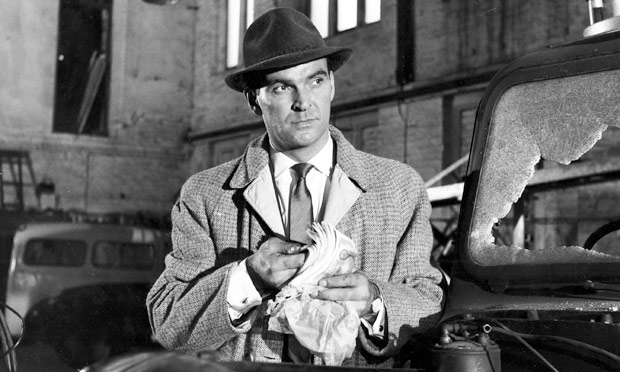
Hell Is a City is an underrated cult classic of British cinema. After a decade of Kenneth More, Richard Todd and Dirk Bogarde, by the end of the 1950s, British cinema had a new crop of film stars. Stanley Baker was one of them, a fresher, more complex, more working-class star for the 1960s.
Hell Is a City plays like a mash-up of film noir and bold British melodrama, depicting a snapshot of post-war industrial Manchester. A brutal, violent thriller, it echoes the then prominent kitchen sink drama.
Filmed nearly entirely on location in Manchester, Hell Is a City features Stanley Baker as Harry Martineau, a weary but determined police detective dedicated to his job. Martineau is convinced that Don Starling (John Crawford), a dangerous, escaped convict, will return to Manchester to collect the loot from a previous crime. The story builds momentum as an unplanned murder of a young woman alerts Martineau that Starling is in the vicinity, with Martineau closing in on Starling and his criminal cronies.
Based on a novel by Maurice Proctor, Hell Is a City is a stylish thriller produced by horror specialists Hammer Films and directed by the vastly undervalued genre director, Val Guest. Lead actor Stanley Baker is in top form as the dogged detective, and John Crawford, if you forgive his accent, is excellent as Starling, the escaped convict, who murders, rapes, and beats his way out of trouble.
The film is sprinkled with first-rate actors, such as Donald Pleasence, Vanda Godsell, and a young Billie Whitelaw as a bookie’s wife, with Whitelaw bagging herself a British Academy Award for best newcomer. Hell Is a City is a surprisingly violent thriller, which allows the audience a brief flashback of the north of England in transition from its industrial past to a more modern Manchester on the cusp of change.